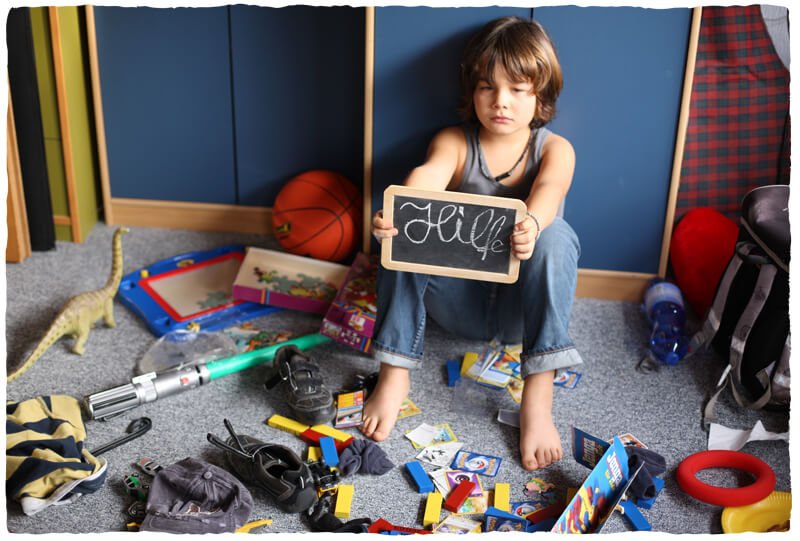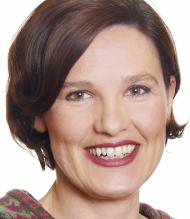Berlin, November 06/7, 2018. The Independent Commission for Addressing Child Sexual Abuse spoke to experts on abuse of people with disabilities during its sixth workshop talks.
The discussions focused on the experiences of people with disabilities with (sexualized) violence. So far, take a lot few People with disabilities accepted the confidential hearing offered by the Commission. The Commission would like to look more closely at people with disabilities affected by sexual abuse in the future. Refurbishing in this context of abuse is particularly difficult and support services often do not reach people with disabilities. In the workshop discussions it became clear that the people affected rarely have a language for what they have experienced or that they are often not given the opportunity to speak about sexual violence. They are also often not believed by those around them. During the discussions, the focus was in particular on questions of access and accessibility.
Research on experiences of sexual violence in special schools
Prof. Dr. Sabine Maschke and Prof. Dr. Ludwig Stecher presented the results of the extension study Speak! In the main study Speak! In 2016, more than 2,700 pupils in the 9th and 10th grades of all general school types in the state of Hesse were asked about their experiences with border violations and sexual violence. In the 2017 extension study, the educational scientists focused on students attending special schools.
The results show that special needs schoolchildren are more affected by physical sexual violence than schoolchildren in general schools. Shame and speechlessness regarding physicality and (sexualized) violence, but also ignorance about sexuality and one’s own rights mean that experiences can often not be communicated. According to the study, there is a particularly high risk among young people with a focus on hearing and seeing.

from left: Prof. Dr. Sabine Maschke, Prof. Dr. Ludwig Stecher
© UKASK
In order to be able to reach as many students as possible with a focus on funding, the survey methods were adapted to the needs of the young people. Nevertheless, despite the fact that the survey instruments were as barrier-free as possible and specially trained personnel for the surveys during the study reached the limits of a standardized representative procedure. Because the young people with a focus on funding have completely different questions about violence and sexual issues child abuse be prepared as peers without a special focus. In addition, special requirements for speaking must be created for this target group.
“We have found that a completely different setting and a different preparation are required to raise awareness of these questions. And for the young people, of course, to find words ”, explained Prof. Dr. Sabine Maschke.
Refurbishment project for the Mosbach disability facility
Prof. Dr. Cornelia Helfferich, head of the Social Science Women’s Research Institute (SoFFi F.) reported on the work in the Johannes Diakonie Mosbach. Everyday life and violence in the 1950s and 1960s were examined. In addition to residents, the historical review also concerned employees. The order in which people lived and worked in Mosbach was organized according to template a religious family association with the leader as head, the employees as helping relatives and the disabled people as children, with a corresponding hierarchy. The processing took place under difficult conditions:
“We had a number of difficulties. For example, we had the greatest difficulty in interviewing people with [cognitive] disabilities and limited communication options ”, according to Prof. Dr. Cornelia Helfferich.
Although z. For example, documents were offered in simple language and the presence of confidants was ensured, but both the ability to speak and remember was a great hurdle for people with disabilities There was no term at all and no language for sexual abuse.

Prof. Dr. Cornelia Helfferich
© UKASK
A lot has happened in Mosbach since the reappraisal report was published: The Johannes Diakonie has subsequently developed a model with violence prevention. There are z. B. the principles of cooperation, leadership and corporate culture and see these u. a. closer cooperation with a specialist advice center.
Exchange with the Mutstelle Berlin and a women’s representative
The graduate psychologist Pia Witthöft and the women’s representative Franziska Keil provided information about their daily work with people with disabilities and their engagement with the topic of sexual violence. Pia Witthöft heads the Mutstelle, an ombudsman against sexual violence against people with disabilities. The Mutstelle offers those with cognitive impairments and their relatives advice, information and support, as well as help with mediation and coordination. The Mutstelle is a project of Aktion Mensch and Lebenshilfe Berlin.
If people with disabilities have experienced or are experiencing violence or sexual abuse, a culture of handling and mindfulness is required. This is how you can build trust and encourage people to talk about their experiences, Pia Witthöft reported. Most of the time, those affected also do not report to the courage office themselves.
"That almost doesn’t happen. […] Self-advocates are needed in the institutions who know what’s going on. Which are also like first aid. They know that there is the MUTSTELLE and then they make this connection ", reported Pia Witthöft.

from left: Pia Witthöft, Franziska Keil
© UKASK
In order to reach people with disabilities and to inform them about the work of the commission, personal contact and trust are essential. In addition, cooperation with multipliers such as parents, caregivers, employees in the institutions and other trusted persons is also required.
Empowerment against ignorance
At the end of the workshop discussions, Bernd Eberhardt, Martin Helmer and Ralf Specht presented the BeSt project – advising & Strengths before. The nationwide model project aims to sustainably improve the protection of girls and boys with disabilities from sexual violence in institutions. It is aimed at children, adolescents and young adults with physical, mental, hearing and multiple disabilities, as well as (partially) inpatient facilities for disabled people, in which girls and boys live and are accompanied. The BeSt project is sponsored by DGfPI e. V. (German Society for Prevention and Intervention in Child Abuse, Neglect and Sexual Violence) and funded by the BMFSFJ.

from left: Ralf Specht, Martin Helmer, Bernd Eberhardt
© UKASK
In principle, most people with disabilities are not aware that they too have certain rights and that abusive behavior and disregard for their own privacy should in no way be normal.
“The right to not be touched on breasts or other parts of the body is still unknown to many people with disabilities. For decades, the institutions acted according to such ideas, the educational culture and practice of the institutions is shaped by it ”, Ralf Specht made clear.
Above all, the BeSt project wants to change the culture in the institutions. Facilities would have to be taken by the hand as well as to be taken care of to improve the conditions for the residents. It is about a positive and participative learning process that shows your own grievances and a way into the work-up and creates better prevention. However, since there are many issues to be considered, such a process takes time.
“One experience is that if we put too many change processes in institutions, then such a system has to shut down, otherwise it will not survive”, says Bernd Eberhardt.
After the talks are over, the Commission would like to further deepen the focus on people with disabilities. To this end, the idea of the "outreach commission" for groups of people who are more difficult to reach should be thought through further. Initial considerations include a pilot phase of confidential hearings for people with disabilities. The barrier-free offer, which is specialized for this group of affected persons, is to be tried out and improved if necessary.
After the talks are over, the Commission would like to further deepen the focus on people with disabilities. To this end, the idea of the "outreach commission" for groups of people who are more difficult to reach should be considered further. Initial considerations include a pilot phase of confidential hearings for people with disabilities. The barrier-free offer, which is specialized for this group of affected persons, is to be tried out and improved if necessary.
RELATED ITEMS
-

Sexual abuse: specialized law firm for sexual criminal law
There is hardly a topic that is as socially sensitive as the accusation of sexual abuse of children or adolescents – this accusation alone is enough,…
-

Counseling centers for sexual violence against children and adolescents
Every police station can call advice centers in your area. You can also find special advice centers in the phone book or on the Internet at…
-

living together without violence Subnavigation topics TOPICS 2020. TOPICS 2019. TOPICS 2018. TOPICS 2017. Violence against people with disabilities…
-

Give children with disabilities to daycare? Inclusion and support as part of external support
Inclusion and support in the context of external care We have with special education teacher Caroline Völker about today’s childcare concepts…
